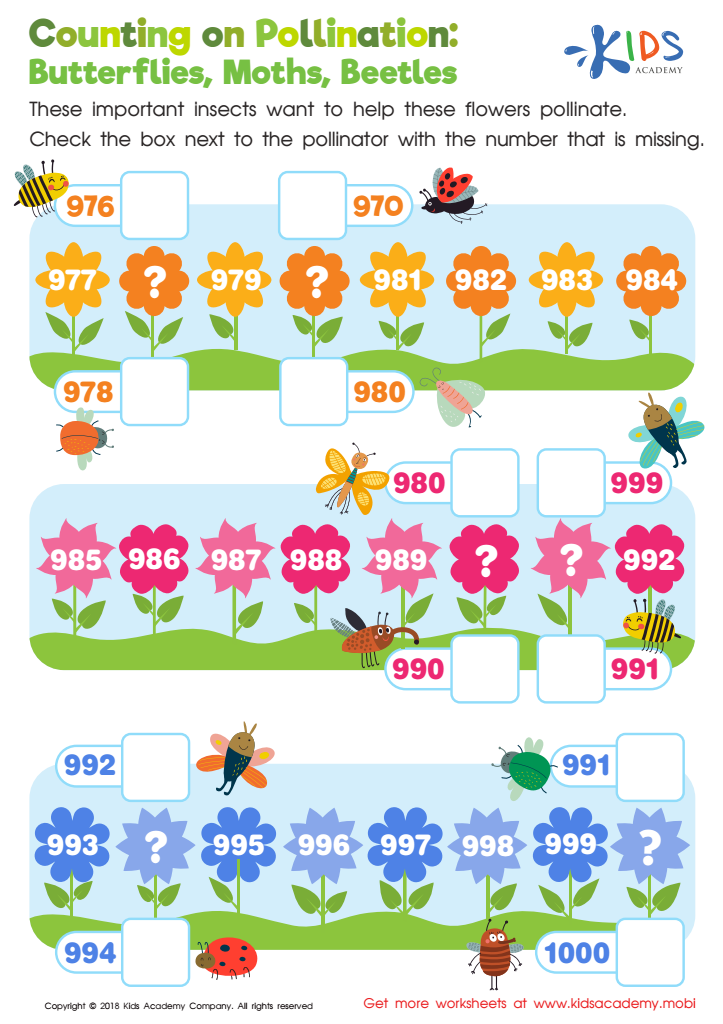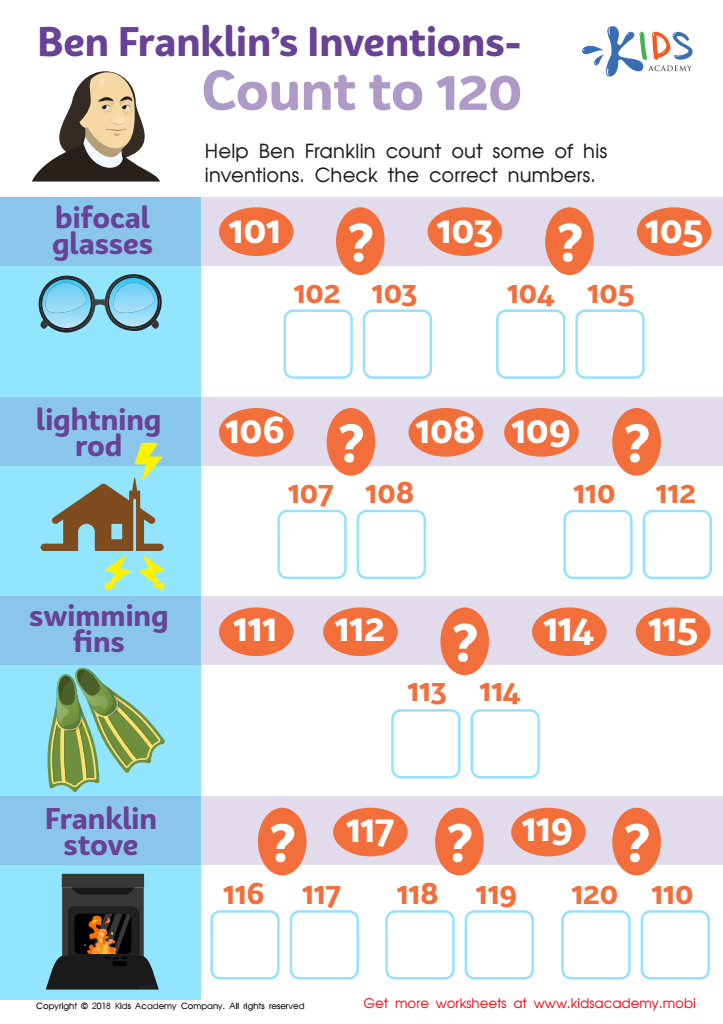Counting practice Numbers Worksheets for Ages 7-9 - Page 2
27 filtered results
-
From - To


Counting on Pollination: Butterflies, Moths, Beetles Worksheet


Counting on the City Skyline: Dot-to-Dot Worksheet


Ben Franklin’s Inventions – Count to 120 Worksheet
Counting practice is a fundamental aspect of early mathematics education for children aged 7-9, crucial for several reasons. At this developmental stage, kids transition from simple rote counting to understanding more complex numerical concepts, such as addition, subtraction, and even the initial stages of multiplication and division.
First, counting underpins all future mathematical learning. As children grasp the value and sequence of numbers, they can more easily tackle problem-solving and logical reasoning tasks. This early numerical fluency is essential for their academic success in more advanced math topics.
Second, consistent counting practice enhances cognitive development. It sharpens memory, attention to detail, and the ability to recognize patterns, all critical cognitive skills that extend beyond mathematics, influencing overall academic performance.
Third, proficient counting builds confidence and fosters positive attitudes toward learning. This can lead to increased participation in class and a greater willingness to tackle challenging tasks. Engaging in counting practice can make math feel fun and relatable, reducing math anxiety and setting a foundation for a lifelong interest in the subject.
Therefore, parents and teachers should prioritize counting practice for 7-9-year-olds as it establishes critical thinking, supports academic achievement, and encourages a positive and proactive approach to learning mathematics.
 Assign to My Students
Assign to My Students






%20(1).jpg)
.jpg)











